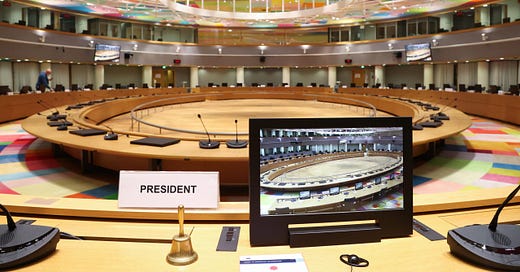EU accelerating energy market interventions but...
A number of policy proposals are hitting the wires to address energy prices, few will be achieved
The EU Energy Ministers, met on September 9 for an extraordinary Council meeting and agreed on a common course to reduce the rising costs of energy for consumers and companies, “which could be implemented at the EU-level in a short timeframe”. There are several raging debates: (i) about the future structure of the electricity market and whether the current “merit order”/marginal pricing system is adequate; (ii) about the temporary capping of electricity and/or gas prices and (iii) about the extraordinary taxation of windfall profits by energy producers.
In the weeks preceding the meeting, several proposals were put forward: the decoupling of gas and electricity prices, the imposition of price caps on the electricity price, the adoption of the “Greek proposal” (see below) essentially restructuring the electricity market, a subsidy to neutralise the price effect of the EU ETS on electricity prices, mandatory interventions into retail prices, expanding State Aid rules to allow the bailout of energy producers and/or provide liquidity in the face of mounting margin calls.
A price cap on Russian gas, following a G7 initiative on Russian oil, was also on the table (supported by France and Estonia). However, Vladimir Putin threatened to cut energy deliveries indefinitely if such measures were adopted. Italy proposed a price cap on all (Russian and international) gas deliveries, a measure supported by Poland, Greece, Slovakia, and Belgium, but strongly rejected by Germany. The Commission tasked Italy, Greece, and Belgium to come up with a clear proposal to implement such a measure.
The Spanish proposal in favour of introducing a cap on the price of the electricity generated using natural gas. The measure is in place in Spain and Portugal since June, following an agreement with the European Commission. The measure can be in force in both countries until May 2023.
The Greek proposal proposed to separate into two segments the wholesale power market: one for renewable sources + nuclear and a second one for fossil fuels. The Greek prime minister is also in favour of compensating industrial consumers for cutting their gas and electricity consumption.
The European Commission had put forward a set of proposals on September 2, which focused mostly on:
1. Reduction of electricity consumption (supported by Netherlands, Greece, Slovakia, Germany but most member states are against mandatory targets),
2. A price limit for inframarginal electricity generation technologies (wind, nuclear, etc), at €200 per megawatt hour and redistribution of the profit through retail markets. Germany, Greece, Belgium, France, Slovakia, Poland, Italy, and the Netherlands support the measure, which will favour mostly countries with an energy mix not reliant on gas.
3. A “solidarity contribution” from oil and gas companies.
The Energy ministers gave “a clear task to the Commission to come forward with a robust and tangible proposal in a matter of days”, in four areas:
1. Capping the revenues of electricity producers that face low production costs;
2. A possible price cap on gas;
3. Measures for a coordinated electricity demand reduction across the EU;
4. Measures that would help to solve the issue of decreased liquidity
The emergency measures could be detailed before the State of the Union address on September 14 but interestingly, the windfall tax on fossil fuels energy producers doesn’t seem on the table; structural changes to the electricity market either. As per the presidency summary of the meeting, the most likely steps are therefore:
i. Revenue caps on inframarginal producers, which is de facto an equalisation scheme between energy producers to socialise some of the windfall profits in electricity production. Note that in some countries, like France, such regulated tariffs are already in place.
ii. The price cap on gas seems unlikely to be made operational for any other country than Russia and given it amounts to a de facto embargo, it seems difficult to imagine it being implemented.
iii. Additional measures to reduce demands are likely but it is difficult to imagine them becoming more than guidelines.
iv. Last given the distress with the liquidity/solvency of a number of energy producers, the EU is set to issue guidelines on State Aid to enable more active national support.



